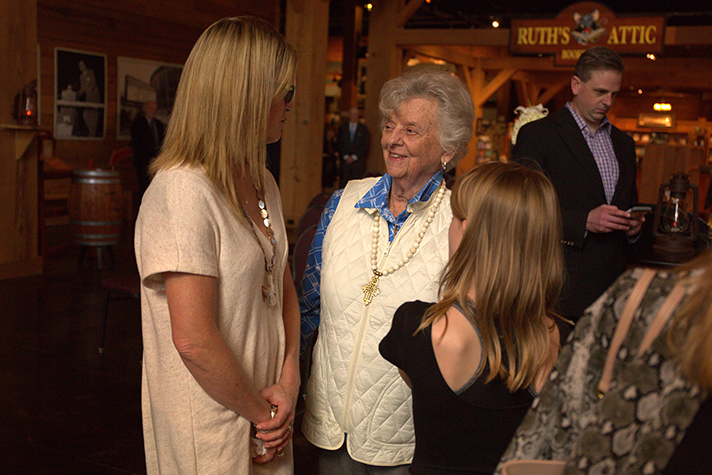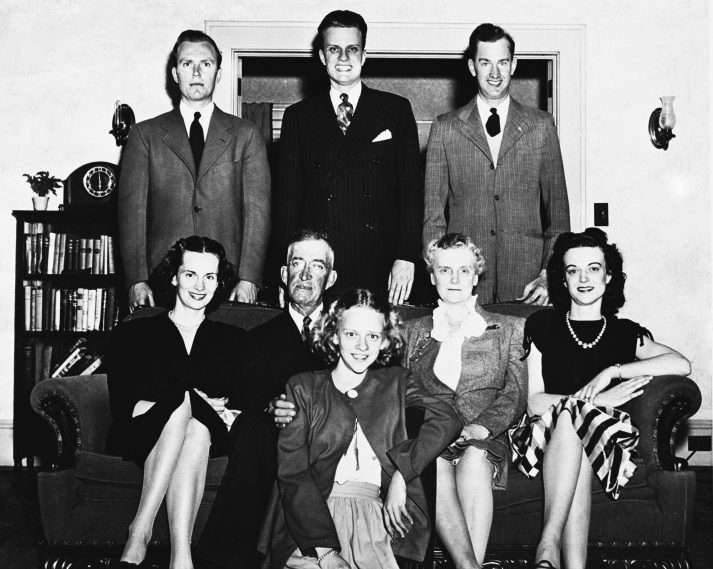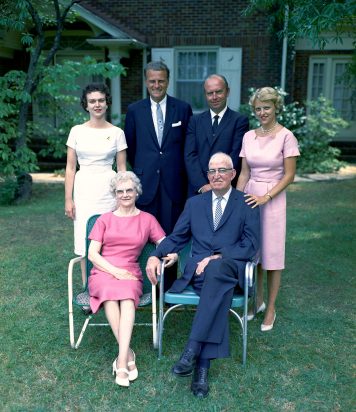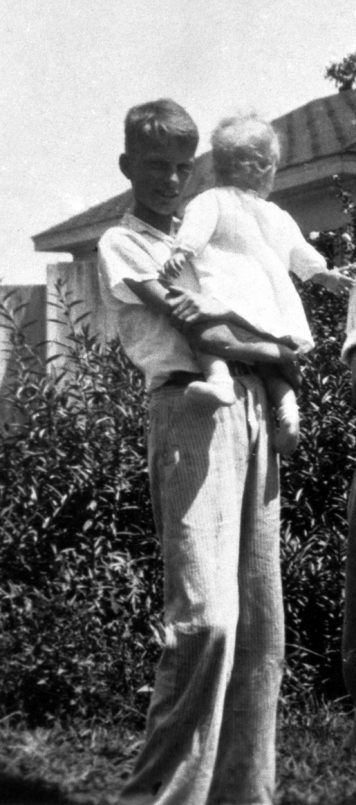
There’s an old hymn that Jean Graham Ford likes. She learned it from her geology professor at Wheaton College. It’s her morning prayer.
May the mind of Christ, my Savior, dwell in me from day to day.
Ford, now 87, can’t remember a time when she wasn’t at least aware of the mind of Christ. Growing up on a dairy farm in Charlotte, North Carolina, the youngest sister of Billy Graham never doubted God’s goodness, even when she contracted polio at age 11.
A painful spinal tap confirmed her illness.
“[The doctor] diagnosed me right there, and said I had polio,” Ford said, her soothing Southern drawl punctuating each word. It’s a Graham trademark.
The year was 1944. Polio, much like COVID-19 today, was an illness that seemed to live in the shadows. In both cases, doctors were mystified by the onset of the illnesses, and each sent its own shock wave of fear through the general population.
>>Spiritual resources, including a 24/7 prayer line, for times like these
Polio flared in the summer months, so people especially avoided swimming pools or congregating in big groups. Meanwhile, the medical community tried to figure out this virus. Just decades earlier, polio reportedly claimed 6,000 American lives during a major outbreak in 1916.
Because little was known then about the transmission of polio, admitted patients could not have visitors. Ford remembers overhearing a conversation outside her hospital room.
“That night, I heard the nurse tell my mother and father out in the hall that I would not make it through the night,” Ford said, later noting the doctors were concerned because polio had paralyzed her throat. They feared it might spread to her heart or lungs.
“I was so sick. Maybe 103, 104 fever, terrible headache and neck ache. And I did not care whether I made it or not. … I do remember this very clearly, that if I died that night, at that age, that would not have bothered me so much because I knew then I was going to heaven.”
‘Jesus Was Part of Our family’
Ford can trace her faith all the way back to that dairy farm in Charlotte. Jesus Christ, she said, was the center of their home.
“He was somebody else that lived there,” Ford said. “We talked to Him a lot, we read about Him a lot and He was part of our family.”

Faith was the backdrop of everything—from spending time with her father on their massive farm to enjoying her mother’s delicious meals and everything in between. The family gathered every day for devotions and prayer time.
Many people retreated during the polio outbreaks. Ford noted it was a scary time, but the Grahams’ trust in Christ only strengthened. Her father and brothers still worked grueling hours on the farm and the family met every day for prayer time.
Life continued as usual, she said.
Meanwhile, Ford was miles down the road at the hospital. After a week in the main building, medical professionals moved her to the overflow tent. Polio hit the western Piedmont hard in 1944, so hospital capacity was an issue. Four years later, polio peaked in North Carolina as the Tar Heel State recorded 2,516 cases and 143 deaths.
“I couldn’t talk or swallow, but I could walk so they put me on a stretcher after a week [in the main hospital] and took me outside into a tent,” Ford said. “The tent was just a wooden structure that had screens on the side of it. There were probably eight or 10 of us in the tent. I remember a little boy died after I had been in the tent for about a week.”

Ford spent her 12th birthday in the hospital, where a controversial treatment involving heat packs was administered.
“[It] was horrible,” Ford said. “They took woolen cloths and put them in boiling water and wrung them out with an old fashioned wringer and wrapped us.
“So I was in the tent in the middle of July in the hot summer, no air conditioning. I remember one fan being in there.
“When my father realized what was going on at the end of the three-week quarantine, he walked in the tent, which he was not supposed to do, gave the head nurse a $10 bill (about $146 today), picked me up and took me home.”
‘The Alarm that Gripped Our Hearts’
Ford’s recovery continued at home, where her mother’s Sunday roast made her mouth water. But she struggled to eat it. Even drinking was a challenge, and Ford couldn’t tolerate the newly mandated pasteurized milk. Her father made special trips to his dairy barn for the real stuff.
“I could take little sips and hope it would go down,” Ford remembered. “He would bring me milk like that to the hospital. Pasteurized milk tasted like water to me.”
Little by little, bit by bit, Ford improved. Her family was overjoyed. Billy Graham, who had just married Ruth, recalled his baby sister’s sickness in his autobiography, Just As I Am.

The newlyweds were originally on their way to Chicago when they heard of Jean’s illness. They rerouted their course for Charlotte immediately.
Mr. Graham wrote, “I vividly remember the alarm that gripped our hearts when she contracted polio about the time Ruth and I got married—and our gratitude to God when she recovered.”
‘It’s So Difficult to Trust’
Over time, Jean Graham Ford’s throat paralysis relented. She still has some trouble today talking and swallowing. But she has zero issue empathizing with people sickened by COVID-19, particularly as doctors try to figure out an effective approach regarding the new coronavirus.
While polio is not related to the coronavirus, and Ford’s sickness was different than what millions are experiencing today, the idea of lying alone in a hospital bed while doctors do their best transcends.
What would Ford say to encourage a patient in that situation? She cleared her throat and sweetly, honestly said it would depend upon the patient. But for Ford, everything goes back to the mind of Christ that dwells in her.
“Sometimes it’s so difficult to trust our lives to the Lord Jesus Christ, and yet to me, there’s no option,” Ford said. “That happened to be ingrained in me, my trust in what He promises, my trust in who I know Him to be.”
For the child of God, she said, there’s security no matter what.
“To become a child of God means a relationship, and it’s a secure relationship that doesn’t depend on illness or it doesn’t depend on the weather,” Ford said. “It doesn’t depend on what we’re able to do or where we’re able to go. It’s a relationship with God the Father, and that just doesn’t change.”
Find peace with God today.

